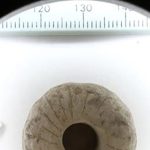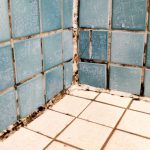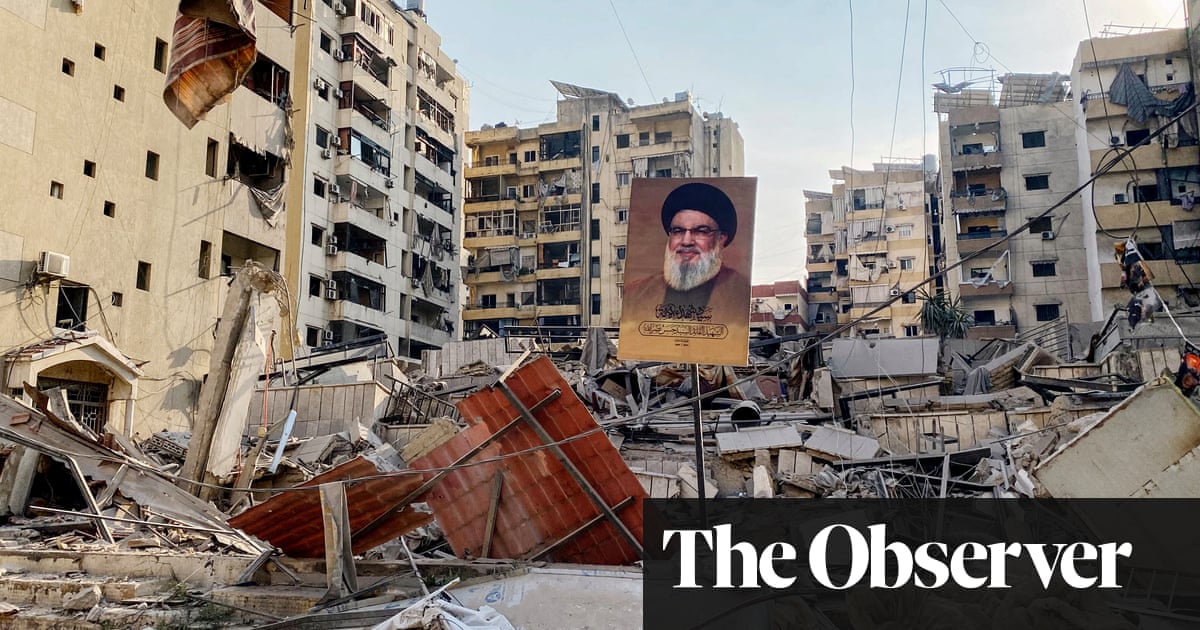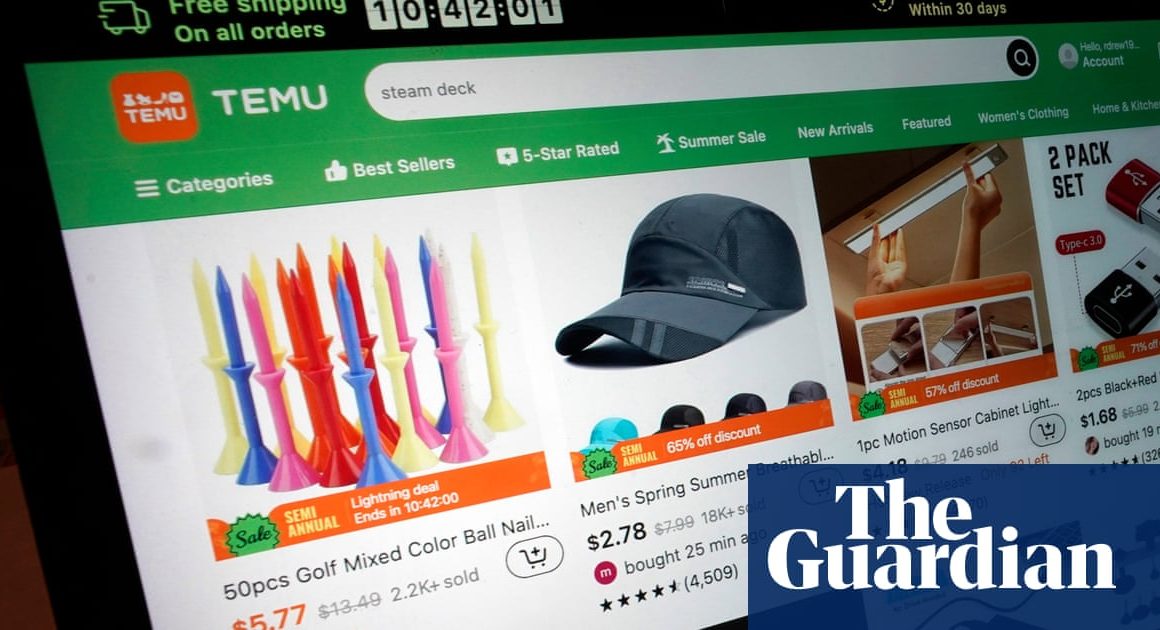When the Sabra family fled Israeli bombardments in the southern Lebanese town of Marjayoun for Beirut’s southern suburbs in October last year, a monthly stipend in dollars from Hezbollah meant they did not fear going hungry. When they were displaced a second time, to the mountains around the capital by a wave of Israeli attacks on southern Beirut, regular deliveries of meals, food parcels and even cleaning supplies from organisations connected to the group have kept them afloat.
“They are taking incredible care of us even with everything that is happening. They never leave us alone,” said Hind Sabra, whose name has been changed. Their house of 14 people contains three families, each receiving a $200 (£150) monthly stipend in cash as well as cut-price medications, and food parcels containing rice, oil, tuna and beans.
The food, medication and cash are all part of a network of support long maintained by Hezbollah, including a de facto bank that has flourished amid Lebanon’s years-long financial crisis, a fund that cares for the families of those killed in battle, and a social care organisation responsible for distributing cash payments to tens of thousands displaced earlier this year, according to a Hezbollah official.
Over the past two decades, Hezbollah has come to dominate the various groups that make up Lebanon’s fractured and sectarian politics, as well as exerting control over key industries such as agriculture and construction in the south. Lina Khatib of Chatham House said the group’s status had grown to “influence and control the state in Lebanon from within state institutions as well as outside them”.
Western countries, including the US and UK, have placed sanctions on Hezbollah and regard it as a terrorist organisation. Meanwhile the group, which comprises a paramilitary organisation and a political party, maintains a support base mainly among Lebanon’s working-class Shia Muslim community that see Hezbollah as a defender of their interests, and essential protection against Israeli military power.
Members of Lebanon’s Shia sect displaced in recent weeks by a dramatic escalation in Israeli bombardments across southern Lebanon said they are confident that Hezbollah will protect them as well as rebuild their homes and compensate them in future. But with more than a million people now displaced, according to the Lebanese government, few indications of an imminent ceasefire, and Israeli assassinations targeting Hezbollah’s leadership, the current escalation could test Hezbollah’s ability to support its base in the long term.
Last week, Israel’s prime minister, Benjamin Netanyahu, gave a speech that called on the people of Lebanon to “stand up and take your country back” from Hezbollah, indicating a shift in Israel’s aims in Lebanon. Netanyahu suggested that Israel could now seek to change the country’s political leadership, rather than attacking Hezbollah’s presence in the south.
“You have an opportunity to save Lebanon before it falls into the abyss of a long war that will lead to destruction and suffering like we see in Gaza,” he said to the country, hinting at far broader aims that could spell greater destruction and a longer period of fighting.
Sam Heller, an analyst with the thinktank Century International, said much depended on how far Israeli forces were able to advance in southern Lebanon, as well as Israeli leaders’ own clarity about their aims. If Israel reoccupies parts of southern Lebanon, making hundreds of thousands of people who make up Hezbollah’s support base homeless, “that is something that would inflict real suffering and I think likely weaken the organisation, and substantially complicate its ability to provide for the welfare of these people,” he said.
Fighting between Israel and Hezbollah in 2006 killed almost 1,200 people in Lebanon and injured more than 4,400, according to the International Committee of the Red Cross, a third of whom were children. About 900,000 people were displaced during the month-long war.
Concerns that Israeli attacks could continue for far longer than the 2006 war, and do more damage, worry Mona Talib, a 42-year-old teacher who fled Dahiyeh for the safety of the mountains around Beirut and whose name has also been changed for her safety. But, she said, Lebanon’s Shia community have put their trust in Hezbollah and its record of reconstruction after the fighting ended in 2006, and cited what she termed her “deep faith” in the organisation’s eventual victory.
“Even if I lose my house, I know it will be rebuilt. It might take a long time, but eventually it will happen,” she said. “People have great faith that their houses will be rebuilt again, whether in Beirut’s southern suburbs, south Lebanon or the Bekaa valley. People return to the past, they remember what happened to them, and they build their future on it.”
Talib said she saw the experience of a close friend who lived in the heart of Dahiyeh, whose “whole building was destroyed” in the 2006 war. “They got their house back. I visited her in the old house, I saw the new one with my own eyes. I saw and know someone who lived it. Simple,” she said.
Hachem Haidar, who heads the Lebanese government’s regional development agency known as the Council for South Lebanon, was less certain. Continued Israeli bombardments that have levelled towns near the de facto border with Israel had made it “difficult to determine the damage”, he said. As for whether Hezbollah would later compensate those who had lost their homes, as recently promised, he said “honestly, I don’t know”.
Ahmad Noureddine, 26, whose name has also been changed, said he had stayed in a makeshift shelter run by Hezbollah for a few days, and that while it covered the essentials, such as food, water and medicine, the place had been overcrowded and it had made for an experience unpleasant enough that he moved elsewhere.
after newsletter promotion
Like Talib, Noureddine currently owes money to Qard al-Hasan, a microfinance institution and de facto bank placed under sanction by the US treasury in 2007 for its ties to Hezbollah.
In sanctioning seven of Hezbollah’s “shadow bankers” in 2021, the treasury said Qard al-Hasan “masquerades as a non-governmental organisation”, while providing banking services that support Hezbollah and evade regulations, and “hoarding hard currency that is desperately needed by the Lebanese economy”.
Noureddine said he was unconcerned by the required repayments for his $6,000 loan from Qard al-Hasan, namely that it might start asking for repayment during wartime.
“They can be flexible with payments,” he said. “They’re very honest, and they fear God. They don’t take interest.”
Talib, who took out a $3,000 loan, remains confident that Qard al-Hasan will not ask for repayments until the fighting ends, citing people she knows who received the cash value of their gold deposits destroyed in airstrikes two decades ago.
“People trust this institution. Trust is even more important than protection,” she said, adding that she was doubtful that it would start demanding loan repayments even if fighting continued for months, and Israeli airstrikes continued to pummel the part of southern Beirut where her branch was located.
The Israeli government has long regarded Hezbollah, an Iranian proxy, as a threat, a view compounded by the organisation’s decision to fire rockets into northern Israel from 8 October, the day after the Hamas attack on southern Israel which killed about 1,200 people.
While Israel initially said its attacks on Hezbollah were intended to ensure the return of thousands of Israelis to their homes near the border with Lebanon, the broadening escalation has sparked increasing fears of a regional war.
Lebanon’s displaced Shia community, huddling in makeshift shelters and bare apartments, might be suffering the immediate shock of displacement in the short term, said Talib, but looked to Hezbollah’s record of rebuilding much of southern Lebanon and fighting Israel’s previous occupation of the area as evidence it could care for them for the long haul. “This party, this special party, liberated their land and gave them the opportunity to go back to their villages and enjoy their lives – they will be with it no matter what, even if it lost its leaders out of nowhere,” she said.
“Even if they lost a battle, they won’t lose the war,” she added. “People believe in the party based on their previous experiences. There’s no war without losses, but the winner is the one who wins the last battle.”












